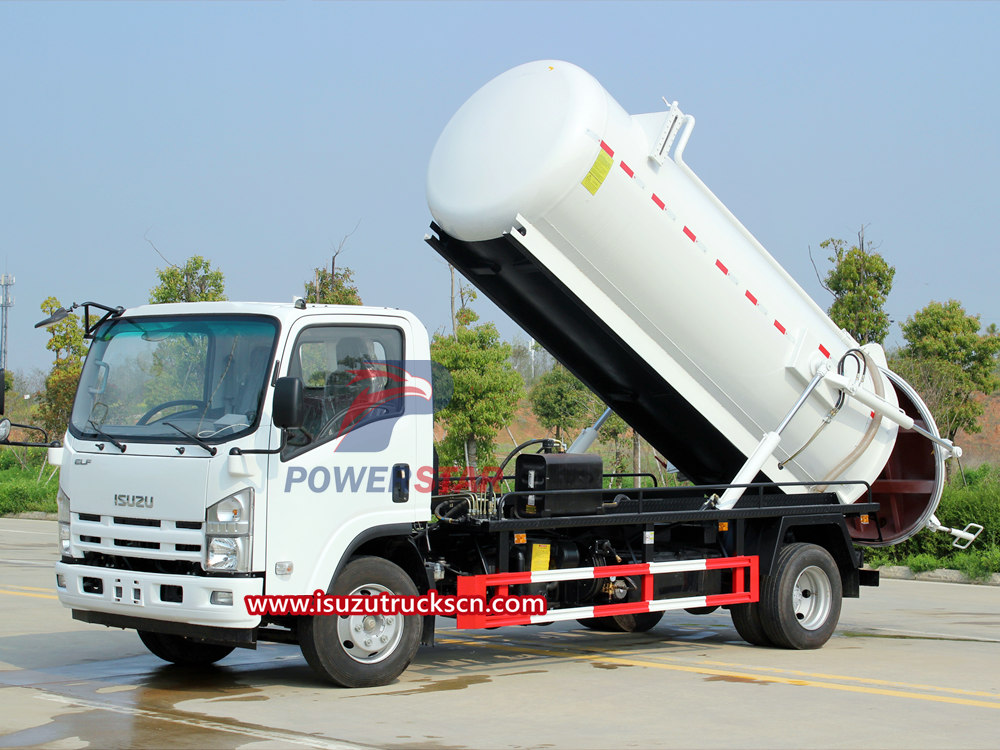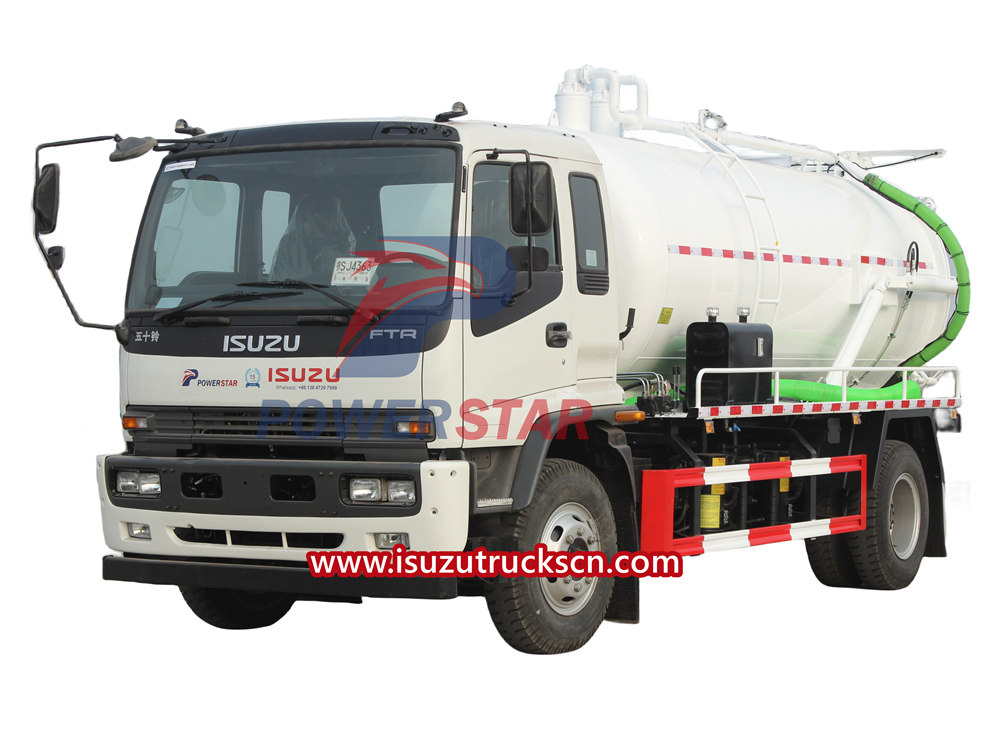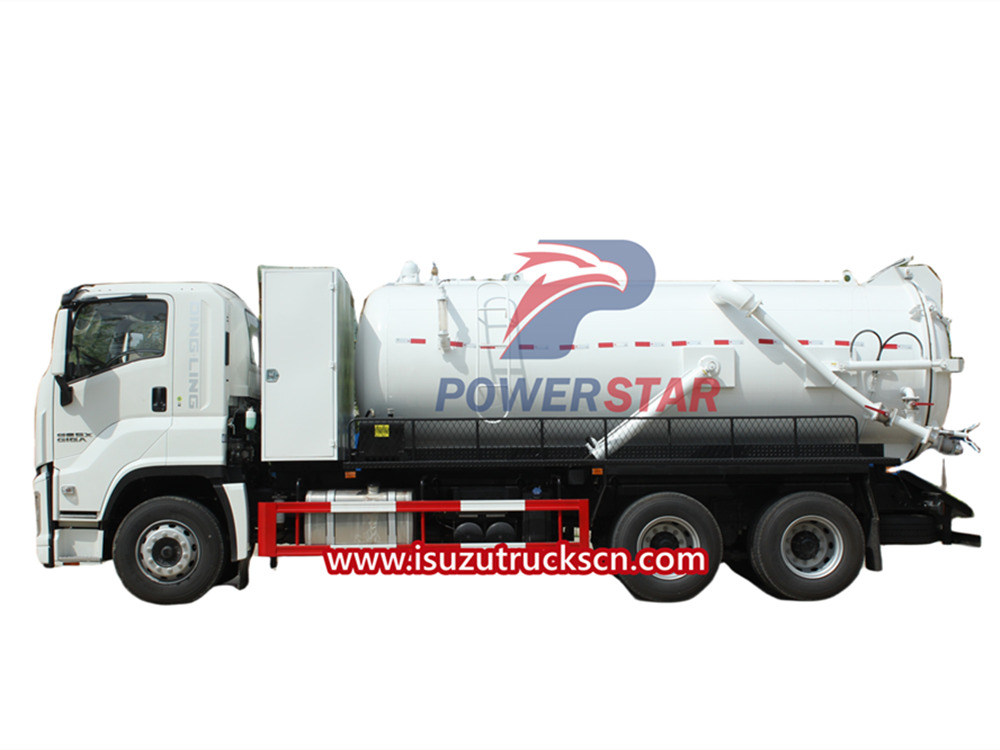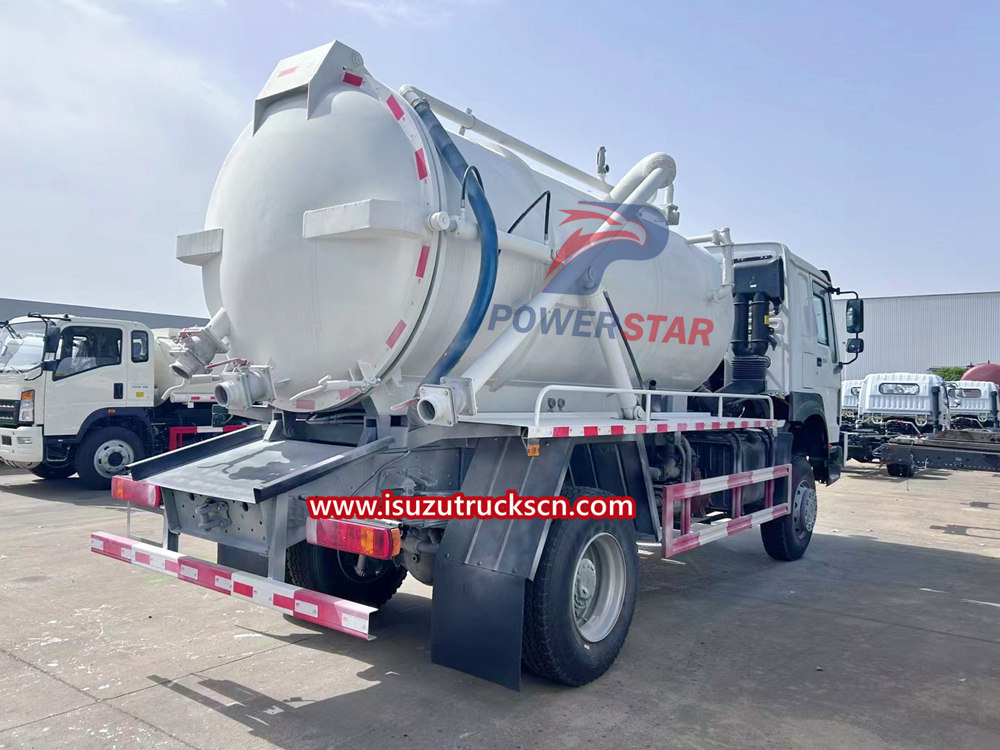


During use, many septic tank trucks often experience oil leakage failures. This will directly affect the technical performance of septic tank trucks, lead to a waste of lubricating oil and fuel, consume power, affect the cleanliness of the vehicle, and also cause environmental pollution. Oil leakage will reduce the lubricating oil inside the machine, resulting in poor lubrication and insufficient cooling of the machine parts, which may cause early damage to the machine parts and may even cause an accident. Therefore, oil leakage from septic tank trucks is an important issue that requires attention. Therefore, it is best for us to choose Isuzu septic tank trucks, which can greatly ensure the safety of use.

Main Reason:
1. The quality, material or workmanship of the product (accessories) is poor, and there are problems with the structural design.
2. Improper operation during the assembly process, the mating surface is not clean, the gasket is damaged or displaced, or the installation is not performed according to the operating procedures.
3. Uneven tightening of the fastening nuts, broken or loosened slide wires, etc. may lead to work failure.
4. After long-term use, the sealing material wears excessively, ages, deteriorates, deforms and fails.

5. Too much lubricating oil is added, the oil level is too high or the wrong oil is added.
6. The joint surfaces of parts (such as side covers and thin-walled parts) are flexed and deformed, and the shell is damaged, causing lubricating oil to seep out.
7. After the breather plug and one-way valve are blocked, oil leakage will often occur at weak sealing points due to the difference in air pressure between the inside and outside of the box.

Precaution:
1. Pay attention to the cushioning effect. The gaskets between various joint end faces, end covers, shells, cover gaskets and other components of the vehicle serve as leak-proof seals. Ensure materials, production quality and installation meet technical specifications to ensure leak-proof sealing.
2. Tighten various fastening nuts according to the specified torque. Too loose or too tight will cause the gasket to leak or the metal protrusions around the screw holes or the screw thread to slip, causing oil leakage. In addition, if the oil pan drain plug is not tightened or becomes loose and falls off, it will cause oil loss and cause machine damage.

3. Replace failed oil seals promptly. Pay attention to the concentricity of the journal and the oil seal cutting edge during installation to prevent the oil seal from losing elasticity due to aging. If leakage is found, it should be replaced promptly.
4. Avoid clogging of one-way valve and vent valve. Regularly check, clear and clean the ventilation system of the sewage suction truck to prevent the temperature from rising and oil and gas filling the space causing oil leakage.
5. Properly solve the sealing problems of various types of oil pipe joints. Pay attention to the disassembly and assembly of the union nut. When replacing it, use the grinding method to solve the cone sealing problem and ensure the tightening and sealing effect of the nut.
6. Prevent wheel hub from throwing oil. Use the appropriate amount of grease to ensure that the oil seal is correctly assembled and of good quality to avoid problems such as excessive hub temperature and loose axle nuts, and to clear the breather hole to maintain normal operation.

By taking these preventive measures, we can effectively prevent the occurrence of oil leakage problems in Isuzu septic tank trucks and ensure the normal operation of Isuzu trucks and the cleanliness of the environment.




